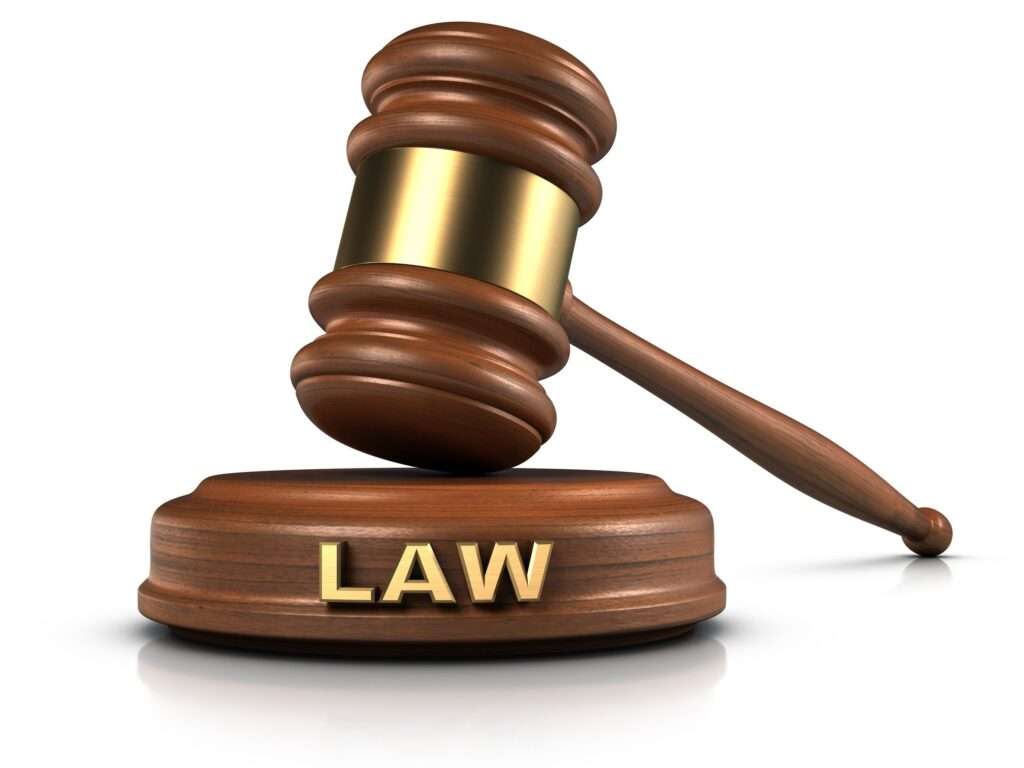This is a study module on JUDICIAL ORGANIZATION IN CAMEROON
The organization and jurisdiction of courts in Cameroon is laid down by law number 2006/015 of 29 December 2006. In this law, courts have been classified into three different categories
- Category one: courts with original jurisdiction
- Customary courts
- Courts of first instance
- High courts
2. Category two: courts with appellate jurisdiction
- Court of appeal
- The supreme court
3. Category three: courts with exceptional jurisdiction
- The military tribunal
- Special criminal court
- Court of impeachment
Category one
Courts with original jurisdiction
- The customary court
The customary court is found at the level of an ethnic group or a tribe. Judgment in a customary court is based on the custom and tradition of the people.
- The court of first instance( Magistrate court)
According to section 13 on the law of judicial organization, the court of first instance shall be established in each sub division with it sit at the chief town of the sub division
Organization of the court of first instance
The court of first instance principally comprises of two sections that is the bench and the legal department. The bench is headed by the president of the court and the legal department by the state council.
The jurisdiction of the court of first instance
In criminal matters:
- The court of first instance is competent to trial criminal offences classified as simple offence or misdemeanor offences
- To hear application for bale lodge by persons detained or charged with a criminal offence within its jurisdiction
- To trial felonies committed by minors without adult being as co-offender or accessories.
In civil, commercial and labour matters
- The court of first instance is competent to hear matters when the amount claim as charges do not exceed ten million FCFA
- It also entertain cases relating to the unquestionable recovery of debt that do not exceed ten million FCFA
c). The high court
According to the 2006 law on judicial organization in Cameroon, the high court is located at the level of each division. The seat of the curt is found at the divisional head quarter. The high court is divided into three. The bench, the legal department and the preliminary investigation department.
Jurisdiction of the High court
In criminal matters
-The high court trial offences classified as felonies and misdemeanors
– It hears and determine applications for bail lodged by person detained within its jurisdiction.
Civil, labour and commercial matters
The high court handles suits relating to the status of persons, civil status, marriage, divorce, filiation, adoption and inheritance.
- The high court also hears civil and commercial matters relating to claims that are ten million FCFA. And above
- The high court is also competent to hear claims resulting from recovery of unquestionable debt that do not exceed ten million FCFA
Prerogative writs of the High court
- Mandamus
It is an order from the high court to a lower court or to a government official to perform a positive duty, in other words, it is an order from the high court to a lower court or a government official to do what he was legally required to do by the law.
- Prohibition
It is an order from the high court forbidding an inferior court or tribunal for exceeding its jurisdiction. In other words, it is an order from the high court to a lower court or government official stopping them from doing what they were not legally required to do.
- Habeas corpus
It is an application demanding for an immediate release for someone who has been illegally detained
- Certiorari
It is an order coming from the high court to the lower court requesting or instructing a lower court to submit the file of a particular case for it to be reviewed.
Category two
Courts with appellate jurisdiction
a).The Appeal court
The appeal court is found at the level of each region. The seat of the court is at the regional head quarter. There are ten appeal court in Cameroon
The jurisdiction of the Appeal court
Listen and determine all appeals coming from lower courts
b) The Supreme Court
The Supreme Court is considered as the highest court of the land. It is found at the chief town of the country (Yaoundé). The Supreme Court has three main benches: The administrative, judicial and the audit benches.
- The administrative bench
This bench is in charge of judging all administrative dispute and those involving public authorities
- Judicial bench
They are in charge of giving final judgment to all the appeals coming from the ten appeal courts
- The audit bench
It in charge of controlling and rolling on all public and para-public affairs
Category three
Courts with exceptional jurisdictions
-The military tribunal
-The special criminal court
-The court of impeachment
Personnel of the court and their functions
Function of a judge
- He has the duty to render justice and to do so with impartiality
- He is also in charge of settling dispute and rendering judgment in a given case
- He chairs and takes records in all proceedings
- He also have the duty to prevent the commission of crimes in a society
In discharging the above functions, the judge is expected to be neutral, impartial and his judgment must be subjected to the law and his conscience
Function of the court registrar
-He is the custodian of all originals of court judgments
– He or she takes down minutes in courts during courts sessions
– He or She keeps and preserve exhibit tendered before the court
– He or She plays the role of the store accountant by receiving payments on behave of the court.
-He or She call up cases from the case list
Function of the Bailiff
-He is a process saver
– He ensures that court judgements are well executed
-He carries out auction sales of seized properties in the pub
Function of the Lawyer
-They act as advisers to their clients
-They represent their clients in court
-They ensure that judgment passed in favour of their client is well executed
-They receive payment on behalf of their client
-They carry out legal drafting for their client
Function of the judicial police
- The auxiliary of the state council
- They investigate offences
- They collect evidence
- The identify and bring the offender before the state council
- They also play the role of a process saver like the bailiff
- They receive complains from the general public
Get in touch with us via whatApp
JUDICIAL ORGANIZATION IN CAMEROON, JUDICIAL ORGANIZATION IN CAMEROON, JUDICIAL ORGANIZATION IN CAMEROON, JUDICIAL ORGANIZATION IN CAMEROON, JUDICIAL ORGANIZATION IN CAMEROON, JUDICIAL ORGANIZATION IN CAMEROON, JUDICIAL ORGANIZATION IN CAMEROON, JUDICIAL ORGANIZATION IN CAMEROON, JUDICIAL ORGANIZATIONS IN CAMEROON, JUDICIAL ORGANIZATIONS IN CAMEROON, JUDICIAL ORGANIZATIONS IN CAMEROON, JUDICIAL ORGANIZATIONS IN CAMEROON, JUDICIAL ORGANIZATION IN CAMEROON, JUDICIAL ORGANIZATION IN CAMEROON, JUDICIAL ORGANIZATION IN CAMEROON, JUDICIAL ORGANIZATION IN CAMEROON





